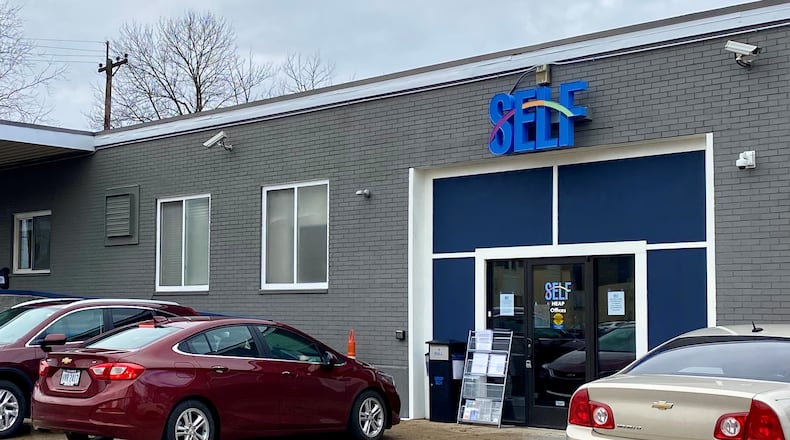As part of the $900 billion federal omnibus bill passed in late December, lawmakers set aside $25 billion to help renters who struggled to meet their housing obligations during the coronavirus pandemic. Butler County qualified for $11.4 million of the money. The new $9 million allocation comes from the American Rescue Plan.
SELF Executive Director Jeffrey Diver told the Journal-News the organization has served 117 households with $454,899 in rental and utility assistance since mid-April. Less than $20,000 was used by the end of April, so spending has increased quickly.
“Last week, I signed checks for about $250,000 in one week,” Diver said. “That’s a lot of assistance.”
SELF can be reached at selfhelps.org or 513-868-9300.
Community Development Manager Desmond Maaytah said the county has until September 2022 to spend the first allocation. The second bucket expires in September 2025. Maaytah said he is waiting for further guidance from the treasury on protocols for accessing the funds, if the commissioners choose to pursue it.
Two commissioners told the Journal-News applying for the funds is not a foregone conclusion.
“Based upon the applications which we’ve gotten so far it doesn’t appear they warrant the need,” Commissioner T.C. Rogers said. “Unless that changes I can’t see going for the other money.”
Commissioner Don Dixon agreed.
“If we can find a purpose for it that really makes sense, that has a real positive effect on the community then we would obviously use it,” Dixon said. “But at this time it looks like it may not be needed. If that’s the case we wouldn’t just spend it to spend it.”
Commissioner Cindy Carpenter couldn’t be reached for comment.
The latest treasury guidance offers some more lenient uses for the new money that goes beyond just paying back rent and utilities.
“For Emergency Rental Assistance to meet its housing security goals, the funds may need to be increasingly available to cover such costs as moving expenses, security deposits, future rent, utilities, and the cost of a transitional stay in a hotel or motel when a family has been displaced,” The guidelines reads. “The treasury guidance reinforces that each of these expenses should be considered eligible — and encouraged — uses of emergency rental assistance.”
County Administrator Judi Boyko said there are approximately 45,000 rental units countywide and recipients of the relief must be able to demonstrate their inability to pay their rent is due to COVID. Eligible renters must make below 80% of the area median income, which equates to earnings of around $45,000 for a family of two.
The commissioners attached their own conditions on the money, they wanted assurance landlords won’t evict the people after they get their money or raise rent; they wanted to utilize wrap-around programs the county has to help people get back on their feet, and they wanted to make sure people understand this is short-term assistance.
There have been other federal funds available to keep roofs over people’s heads. Diver said in total they have helped 840 households with $2.5 million to help pay rent, mortgage and utilities. The previous funding allowed help for homeowners and there is $1.3 million left in that pot of money. So far only nine homeowners have received $19,112 in assistance.
The new money cannot be used to pay home mortgages. Dixon said he would love to be able to use some of the new money to help homeowners.
“There’s homeowners that are probably on the verge of being homeless,” Dixon said. “That would be a way to work out a loan program or something like that to keep them in their homes, keep them occupied. It would be great if they’d rethink some of that stuff.”
U.S. Rep. Warren Davidson said he and his fellow Republicans tried to include homeowners, just like Ohio townships that were left out of funding.
“Republicans wanted to improve the package to address these issues, but Democrats repeatedly voted down our amendments — if they let us vote on them at all,” Davidson said “It’s yet another example about how large-scale central planning from Washington fails Ohioans.”
About the Author

